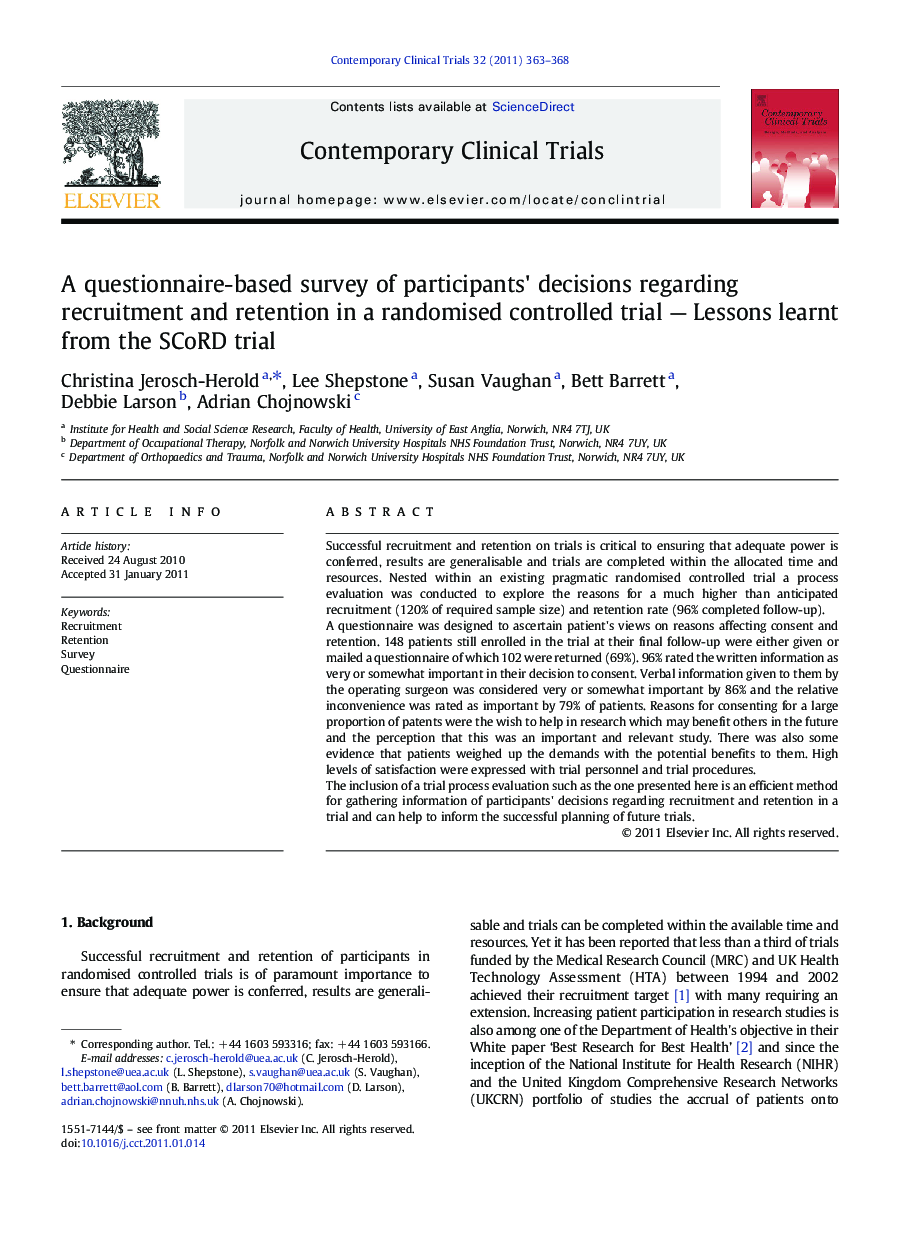| Article ID | Journal | Published Year | Pages | File Type |
|---|---|---|---|---|
| 3463015 | Contemporary Clinical Trials | 2011 | 6 Pages |
Successful recruitment and retention on trials is critical to ensuring that adequate power is conferred, results are generalisable and trials are completed within the allocated time and resources. Nested within an existing pragmatic randomised controlled trial a process evaluation was conducted to explore the reasons for a much higher than anticipated recruitment (120% of required sample size) and retention rate (96% completed follow-up).A questionnaire was designed to ascertain patient's views on reasons affecting consent and retention. 148 patients still enrolled in the trial at their final follow-up were either given or mailed a questionnaire of which 102 were returned (69%). 96% rated the written information as very or somewhat important in their decision to consent. Verbal information given to them by the operating surgeon was considered very or somewhat important by 86% and the relative inconvenience was rated as important by 79% of patients. Reasons for consenting for a large proportion of patents were the wish to help in research which may benefit others in the future and the perception that this was an important and relevant study. There was also some evidence that patients weighed up the demands with the potential benefits to them. High levels of satisfaction were expressed with trial personnel and trial procedures.The inclusion of a trial process evaluation such as the one presented here is an efficient method for gathering information of participants' decisions regarding recruitment and retention in a trial and can help to inform the successful planning of future trials.
